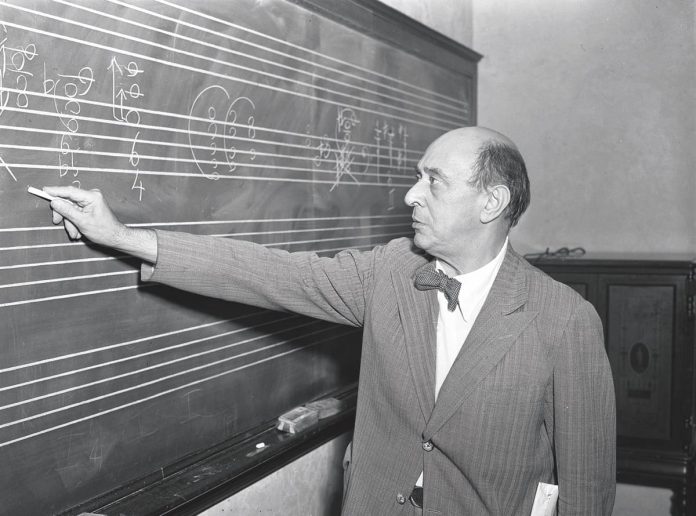Mr Fink’s book is the sole representative in music of the Materialist school; he himself defines Materialism thus: “Materialism is a body of thought whose premise is that only real, knowable laws and forces exist and operate in the universe, and not that imaginary, mystical or ‘un-knowable’ forces and laws exist. Materialism does not attribute the causes of things to fate.”
He therefore postulates the existence since the beginning of time of a universal law of acoustics. He sees the gradual evolution of, for example, a musical scale based on the addition of the overtones of the tonic fourth and fifth as man’s steps along the road to an awareness of what was already there, and discounts purely cultural explanations of musical progress.
Having outlined this in immense detail, making every attempt at all times to write in a lucid manner intelligable even to those with the minimum of musical knowledge, he then goes on to put down the music of Schoenberg and his followers in no uncertain terms.
An examination of the book in the kind of detail due to it would be outside the terms of reference of a reviewer on a jazz magazine, and would be beyond my capabilities anyway; (in passing, I should note that one of the author’s reference to jazz makes rather painful reading: “While jazz … is mostly bad, a great deal of it is real art.”) but I think that this remarkable book could become a classic if given the exposure it deserves. It was published entirely through the author’s own efforts, and is obtainable only from him.
The Universality of Music by Robert M. Fink (Greenwich Meridian Co, 468 Prentis, Detroit, Michigan 48201. 294pp, illustrated. $6.95 hard, $3.25 paper)
















